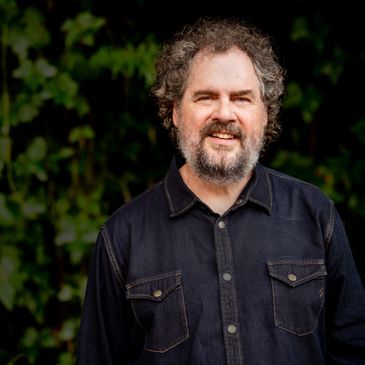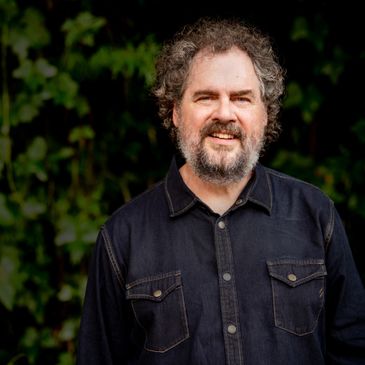
Patterson Hood
Saturn
∙
Birmingham
Friday, March 28 at 8 pm CDT
Concert Venue
Friday, March 28 at 8 pm CDT
Concert Venue
Entry Options
Details
Description
Drive-By Truckers co-founder Patterson Hood’s fourth solo album and first in over 12 years, Exploding Trees & Airplane Screams sees the veteran singer, guitarist, and songwriter exploring his youth and young manhood in a collection unlike anything in his ever-evolving catalogue. A baroque American song cycle spanning the time between early childhood and leaving his rural hometown in search of his musical dreams, the album gathers songs that have amassed over the remarkably prolific songwriter’s career, many of which provided him with distraction and creative sustenance during lockdown, others which have resided among his notebooks for years. Songs like “The Van Pelt Parties” (featuring members of “my favorite new band,” Wednesday) and “At Safe Distance” are fueled by finely drawn character studies and Hood’s well-honed gift for clear-eyed self-examination, looking at crucial memories and life experiences to process the moments that saw him coalesce into his adult self.
“This record has all these kinds of unintended themes,” Hood says. “It’s all subconscious, because I didn’t really set out with an agenda, writing-wise. It really just kind of occurred to me when I was actually putting it all together, just how much it seems to have a theme to it.
”The dozen years since his last extracurricular outing, 2012’s Heat Lightning Rumbles in the Distance, had seen Hood accumulate a cache of material which did not quite fit into the Drive-By Truckers canon, songs which he set aside for “if and when” he got around to another solo project. Kept off the road during the 2020 lockdown, he found himself recording demos in his Portland, OR attic, without a clear plan but thinking “maybe this might be worth pursuing at some point.”
Hood had moved to Portland with his family in 2013 and swiftly found a place among the Rose City’s thriving music scene, including a friendship forged with producer/musician Chris Funk (The Decemberists). Having long discussed collaborating, in 2023 the two artists’ typically stacked calendars finally allowed them the opportunity to team up and they set to work recording what Hood intended to be “a bigger departure” from Drive-By Truckers and his previous solo efforts than ever before.
“The band has been in such a good place that I hadn’t really thought in terms of doing anything outside of the Truckers anytime soon,” Hood says. “I decided if I ever was going to do another solo record, I wanted it to be pretty different than the band, as different as it can be.
”Working largely at a number of Portland studios, Hood accomplished his goal, in part by writing much of the album on piano in a vigorous attempt to expand his parameters in new, heretofore uncharted, directions. While he planned to bring in a professional pianist for the recording sessions, Funk, eager to push his friend from his comfort zone, encouraged Hood to play the parts himself.
“I wanted to get good enough on piano to where I could use it as a songwriting tool and that’s basically what I did,” he says. “My plan was to bring in somebody for the record that actually knew how to play the damn thing. But then Chris Funk informed me, ‘By the way, I hope you’repracticing piano, because you’re going to be playing it on your record.’ And I’m like, ‘No, I’m not.’ ‘I like your piano playing,’ he said, ‘I’m the producer and I want you to play the piano on it. So maybe practice some so that it’ll be good.’ I was terrified, all the way up to the night before we started recording. I couldn’t sleep, I was so nervous about going in and playing piano in the studio. But then, when I actually did it, it was alright. Like I said, I’m no piano player, I’m not doing anything super fancy, but I actually did it pretty efficiently. It didn’t take a whole lot of time, it all came together and was pretty solid.
“In retrospect, Chris practiced a little of what he was preaching, because I could hardly get him to play any guitar on the record, he mostly played keyboards. I had figured he’d play a bunch of guitar, he’s such an amazing player and he plays very differently than any of the guitar players I play with, but he was pretty dead set on not really playing much at all.”
Hood further took the occasion to explore sounds outside the boundaries and obligations of his day job, deviating from Drive-By Truckers’ traditionally guitar-driven palette to craft richly textured arrangements marked by the inclusion of strings, woodwinds, and vintage analog synthesizers.
“There’s really not a lot of guitar work on this album,” he says.“I’m only playing electric on a few things. That was fun too, because,I’m in a really kickass guitar band so it’s great to do something outside of that. Everything ultimately suited the project. It’s not like these decisions were made just for the sake of it. There was a point to it, for sure.
”Auxiliary backing was provided by a stellar cast of friends and musicians including fellow Alabama native Katie Crutchfield (Waxahatchee), Brad and Phil Cook (Megafaun), Kevin Morby, Wednesday, Steve Berlin (Los Lobos, The Blasters), Brad Morgan and Jay Gonzalez (Drive-By Truckers), David Barbe (Sugar, Mercyland), Nate Query (The Decemberists), Steve Drizos (Jerry Joseph and The Jackmormons), Daniel Hunt (Neko Case, M Ward), and Stuart Bogie (The Hold Steady, Goose).
“I was really moved by some of the people that were willing to apply their talents to it,” says Hood. “There are people that play on this that I’ve been a huge fan of for a long time, and for them to be a part of a record I made is a big honor to me. I made a wish list of people that I would love to be on this record,andI was kind of blown away that with the vast majority of them, it worked out.”
But as Hood says, “Everything was built around the songs.” To some extent, he notes, the album moves backwards in time, with “The Exploding Trees” being the most contemporary event in the timeline of the record, inspired in part by Hood’s own short story chronicling a natural disaster that occurred in his North Alabama hometown just as he turned 30 and relocated to Athens, GA where Drive-By Truckers were co-founded in 1996. Hood then traverses his childhood and coming of age, reminiscing about his godmother (“Miss Coldiron’s Oldsmobile”) and first love (“A Werewolf and a Girl,” featuring duet vocals from Lydia Loveless), before the album culminates with a remarkable pair of closing songs that includes the string-driven “Airplane Screams,” penned over four decades ago but never successfully recorded until now.
“Airplane Screams” was written when I was 20 years old,” Hood says. “We actually worked up a version of it at the very end of Adam’s House Cat –which was mine and (Drive-By Truckers co-founder Mike) Cooley’s first band – but we never even played another show after we worked it up. At one point the Truckers tried it, but I don’t think we ever played it out either. We recorded a not-particularly-good version of it for an early draft of what became Southern Rock Opera, but it got abandoned. So,it was kind of nice to finally give that song a home, because I always liked it, but I felt like it needed a different approach this time.”
Exploding Trees & Airplane Screams is crowned with what Hood considers among his proudest achievements, “Pinocchio.” The deeply contemplative country ballad perhaps sums up Hood’s overall mission with the album. “It’s a whale of a tale, with so many miles to go,” he sings. “But I get a little closer each day to my long-termgoal.”
“I’ve been wondering what drew me to that story,” he says. “Obviously, I was first exposed to it through the 1940 Disney cartoon version. Disney re-released the cartoon that summer,whenI was seven, right after first grade. I got my grandmother and my uncle to take me, over and over. So,Iended up seeing it a bunch of times in the couple of weeks it was in town, to the extent that I kind of memorized it. I would act it out in the backyard at my grandmother’s, which, you know, further made me the weird kid in the neighborhood.
“As I’ve gotten older, I’ve thought about certain things. The Blue Fairy looks a lot like my grandmother, who was kind of my protector growing up.She very much raised me and my sister. My great uncle was sort of a Geppetto character. I spent every weekend of my childhood with him until I was driving age.He lived out on a farm and worked as a truck driver during the week, then he would come home for the weekends, and I would stay out there with him, I mean, literally, every single weekend from the time I was an infantuntil I was probably 15. He never married, never had kids of his own, so I was kind of his real live boy. None of that really dawned on me until long after I’d even written the song.
“I’m particularly proud of that song,” he adds. “I think it’s probably one of the best pieces of writing I’ve ever done. It’s kind of nice for it to be the last word on the record, coming right after the oldest song on the record.
”With its powerful textural clarity and Hood’s literary strengths at the fore, Exploding Trees & Airplane Screams emerges as a staggering investigation into how time can shed light on the recesses of memory, revealing this exceptionally gifted songwriter’s resolute inclination to look back through the golden haze to grapple with the darkness and secret truths that perhaps weren’t understood or reckoned with at the time. As he has throughout his career – from Drive-By Truckers’ ceaseless investigation into American values and culture to his solo body of work’s autobiographical meditations – Exploding Trees and Airplane Screams sees Patterson Hood once again stripping away the facade of things to get to the core, lifting up life’s rock to see what lies underneath.
“You remember things one way,” he says, “but when you really dip into it, when you really look back, the world was a different place. Things were accepted that wouldn’t be accepted now and things you didn’t understand then make sense now.
“I don’t know if there was anything I set out to do on this record as much as it just kind of worked out that way. You know, there are a lot a lot of happy accidents in this record.”
Endings are messy. Falling in love is messy. Change is messy. Perhaps, change is the messiest of them all. Especially when eyes are on you; when you blast out of adolescence onto stages across the country, then into your twenties, onto more stages and, finally, into your thirties—all on those same stages. The stages that Lydia Loveless has sung her heart out on, has collapsed on, and laughed on, all mirror the stages of her life thus far for the world to see. When Loveless released her first album over a decade ago, she was still a teenager whose songs of debauchery, guzzling alcohol and doing cocaine were an audio wet dream for a certain type of listener who not only wear their music tastes on their (tattooed) sleeve, but in the lifestyle that they emulate: “outlaw” music with brains – akin to Steve Earle, Drive-By Truckers and Lucinda Williams, vintage country heart with a heartland rock soul.
In the end, the music industry is still sadly a man’s world and, as such, Loveless grew up in the spotlight (or perhaps, more accurately, the bar lights) while she was placed on a pedestal. Her voicemail greeting is a tongue-in-cheek ode to this: “Hi, this is Lydia Loveless, savior of cowpunk. Please leave a message and I will get back to you.”
The time between their late adolescence to now is defined by a shelf full of records, hundreds of thousands of miles on the road, and a ribbon of heartbreaks pockmarking their trail. Loveless is a fiercely brave writer who bluntly assesses their life in song: their struggles with alcohol and depression, and the uncertainty of not only the future, but what piecing together the past will mean for the present.
In 2020, they put out their excellent fourth full-length Daughter on their own label, Honey, You’re Gonna Be Late Records, with encouragement from their friend Jason Isbell, but could not tour behind it; the one consistent throughline in Loveless’ life was impossible due to the pandemic. They were living in North Carolina with their boyfriend at the time, stuck, away from the stages they grew up on, isolated from their family, and going stir-crazy. As the world came undone and then back together again, Loveless returned to Columbus, where their career first began. Starting anew, Loveless found part-time work at a recording studio (Secret Studios) and began processing the last two years of their life. The title of their new album, Nothing’s Gonna Stand In My Way Again, came easy—like a mantra from the heavens.
Nothing’s Gonna Stand in My Way Again continues the evolution of Loveless. The artist who once sang that she would rather stay home and drink gallons of wine is now on the other end of the bottle, where a bit of resignation resides. She sings on “Feel”: “I’m getting older and my jets are starting to cool, if I ever get sober it’s really over for you fools.” Though a melancholic weight rests on the record—as it was written after the breakup with her longtime boyfriend and following a period of isolation and depression during the pandemic—it also feels like a triumphant moment from an artist who’s continuing her stride. Loveless has always been a brutally honest songwriter, one whose articulation of love, heartbreak and bad habits is wrapped not only in catchy melodies but also her finesse with words.
Nothing’s Gonna Stand in My Way Again musically retains the spirit of Loveless’ previous records, but also moves past the chunky drunk and almost out-of-control riffing of their earliest work. Present here is something more akin to Rumors and Tusk-era Fleetwood Mac—and it works incredibly well. Their voice is more controlled and wiser. Although the subject matter that they are mining is, at times, desolate, they mask it with the smoother production. It’s as beautiful and tragic as a woman crying in the rain, with make-up streaming down her cheeks: at once real and mesmerizing.
Gently crushing standout “Runaway” opens with a floating piano chord, slowly building with detailed, multifaceted flourishes to a memorable chorus: “I don’t like to run, I just like to run away.” It’s a stunning showcase of Loveless’ powerhouse vocals and heart-wrenching lyricism. On “Toothache,” she sings about the mundanity of daily life feeling catastrophic enough to precipitate a breakdown, as kinetic, dynamic arrangements add to the track’s intense and claustrophobic mood. Album highlight “Sex and Money” was made for driving with the windows down on a sunny summer day, and Loveless’ wry and self-deprecating sense of humor sparkles: “I know I’m not saving the world / But I gotta live in it so I might as well splurge / On 200 cotton t-shirts with my face on the front.” “Poor Boy” recalls the excitement, energy and rebellion of bands like The Replacements, but Loveless makes the mood her own with a subtle twang and a lot of vulnerability: “I need to clean up my mess and leave the poor boy alone.”
Nothing’s Gonna Stand in My Way Again is not only a break-up record drifting back to some of the best of its kind, like Richard & Linda Thompson’s Shoot Out the Lights, Superchunk’s Foolish and of course, Fleetwood Mac’s Rumors, it’s also a reminder to keep improving oneself, taking ownership and moving forward—alone, if needed. Complex and captivating, Nothing’s Gonna Stand In My Way Again is a brave declaration from a person who has survived a lot. Here they lays bare not only their raw pain, but also the strength and resiliency they’ve earned along the way, that only Loveless could hold.

